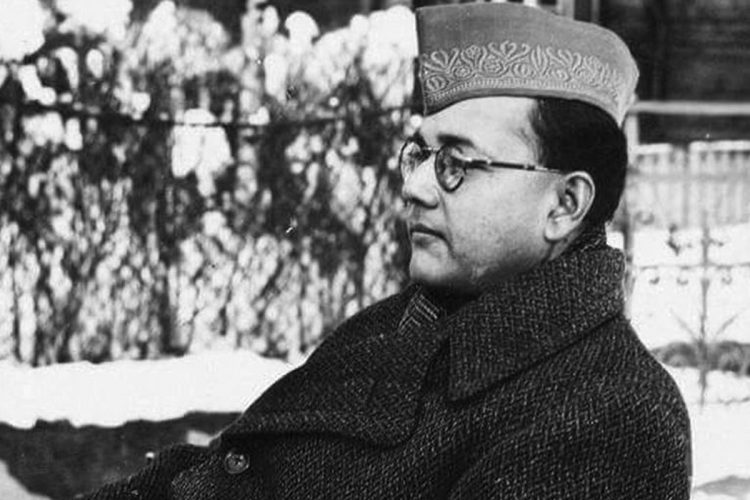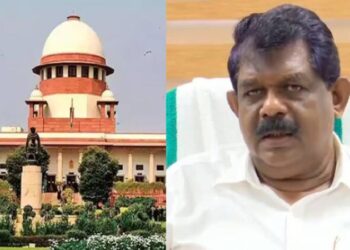New Delhi: Subash Chandra Bose is one of the greatest heroes born in the land of Bharat. His life was a dedication to the service of the Motherland and a tribute to the great message of sacrifice, valour, and service. Nothing deterred from his one goal to free India from the shackles of the British Empire and his vision of a bright future for his countrymen.
Bose is known for the establishment of the Azad Hind Fauj or Indian National Army (INA).
In 1919, Bose took the prestigious Indian Civil Examinations (ICS) in London at the behest of his father and secured the fourth rank. Yet he threw away a secured life of luxury and power to jump headlong into the freedom struggle. He could not serve under the British at any cost.
After his return to India, he worked under Chittaranjan Das, a renowned politician from Bengal, and proved his mettle in rallying support for the cause of the Independence struggle.
He became a recognized figure in the Congress party and became the face of youth for his leadership capability and visionary outlook.
In 1925 he was deported to Myanmar by the British for his anti Britain activities. He traveled widely and met many world leaders to try to garner support for his cause.
When the Second World War broke out in 1939, Subash Chandra Bose had a plan that could bring the British Empire to its knees. While Bose was under house arrest he gave the slip to his captors and escaped from the country and reached Germany after a dangerous and adventurous trail through Afghanistan and the Soviet Union.
In Germany, he set up the Azad Hind Radio through which he spoke to his countrymen in India and called them to fight against the United Kingdom.
He also raised a contingent of Indians ready to fight against the British along with the Germans. The Indian soldiers in Germany addressed him as Netaji or the Supreme Leader.
However, after his meeting with Adolf Hitler, he realized that the military support he expected from the Germans will not be forthcoming. Hitler, though sympathetic to the Indian cause was not particularly supportive because he thought that India was way too far for an immediate military intervention.
Interestingly, the patriotic Bose, in his meeting with Fuhrer, told him about his comments on India in Mein Kampf. Hitler wrote that India would be better off if it was under British rule in his autobiography years ago.
However, Bose had the courage to stand up against Hitler in his lair for the dignity of India. Netaji never feared that his comments might invite the anger of the leader of the Third Reich. That was the courage of Bose which made him one of the most powerful and endearing leaders of Indian Independence movement.
Subash Chandra Bose then travelled to Japan via a submarine provided by the German government. In Japan, he took the leadership of Indian National Army raised from the surrendered Indian soldiers and also from the Indians living in the Far East.
He was able to raise a 40,000 strong force and fought along the Japanese in the most terrible battles in the eastern theatre of the war. The Japanese and the INA managed to capture Andaman and Nicobar Islands, Kohima, and Imphal.
The slogan ‘Chalo Dilli’ caught the imaginations of the Indian soldiers fighting against the British. By 1943, the INA was at the doorsteps of India.
However, their march was halted when the allied forces counter attacked. After the fall of Japan, Bose tried to move to the Soviet Union through China. But fate took away the hero when he is said to have been killed in a tragic plane crash in Taiwan on 18 August, 1945. He was just 48 years old when he passed away.
Subash Chandra Bose was that rare leader who was true to his ideals and never wavered one bit in his commitment to the Motherland. He held fast to his convictions and nothing and no one could change his firm decisions once it is made.
In 1921, Bose met Mahatma Gandhi for the first time and called him ‘Father of the Nation’. His zealous nature was hard to control even by Mahatma Gandhi himself.
Historians say that the activities of Bose and the fight of INA were some of the main reasons that the British made up their minds to leave India. The stories of valour and sacrifice of the INA soldiers rose the patriotic fervour of the Indian masses that the British knew they could not control much longer.
Moreover, the Royal Navy mutiny that broke out was a result of the trials of the INA officers. This made the British realize that they could no longer depend upon the Indian soldier to keep India under foreign rule anymore.
Subash Chandra Bose is and will be remembered and revered by each and every Indian. To the last breath of his life he lived for the liberation of our country. He gave up his life so that we can live and enjoy freedom, dignity and sovereignty.
On his 123rd birth anniversary today, the nation pays humble tribute to the finest freedom fighter of our motherland Netaji Subhash Chandra Bose.













